Away from the Hype: GONE WITH THE WIND
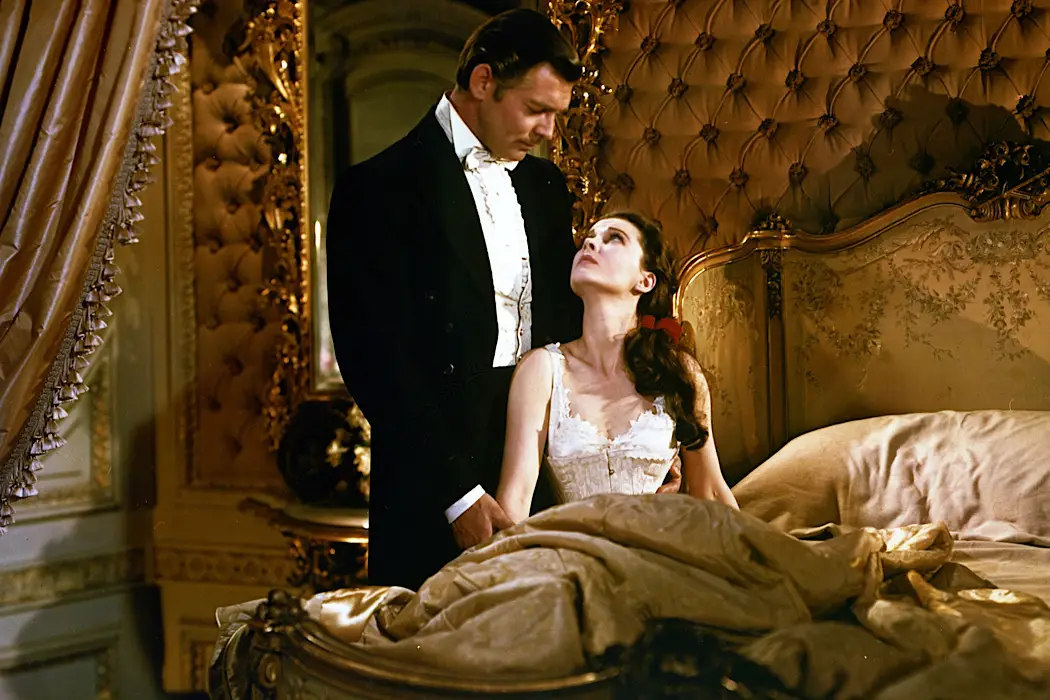
A writer in Australia, Sean used to be a TEFL…
The hype for Gone with the Wind is two-fold. First, it’s regularly held up as a classic and one of the best movies ever made. An essential watch for anyone who enjoys cinema and one of the original blockbusters. It won a ton of Oscars, made Vivian Leigh a star, and is an iconic piece of American culture.
Secondly, it’s weirdly romantic about slavery. Its opening prologue reads: There was a land of Cavaliers and Cotton Fields called the Old South. Here in this pretty world Gallantry took its last bow. Here was the last ever to be seen of Knights and their Ladies Fair, of Master and Slave. Look for it only in books, for it is no more than a dream remembered. A Civilization gone with the wind.
Of course, with America’s anti-CRT crusade you won’t be able to even look for it in books, but I digress. The movie, regularly available since its release in 1939, is hard to find on streaming services as in the wake of George Floyd’s murder and the rise of the BLM movement, a lot of studios and channels cracked down on anything deemed offensive in the current climate.
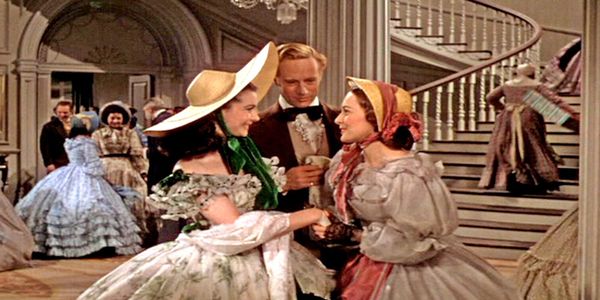
TV shows featuring blackface scenes had those episodes taken off services, Cops was canceled, and Gone with the Wind was kept on HBO MAX but is now prefaced with a documentary about race.
It’s up to you if this sort of performative action is good for the cause or simply studios trying to cover their ass while playing into the hands of right-wing commentators who turn these actions into petty grievances that belittle the movement rather than striking at the systemic problems at the heart of institutional racism. But I digress.
Gone with the Wind is a movie I watched as a child when my mum found it in a bargain DVD bin at a supermarket. It took us two nights because it is long, so long. And as a child, I knew there was definitely something uncool about the treatment of the black characters but it would be years before I learned about the slave trade and the Civil War.
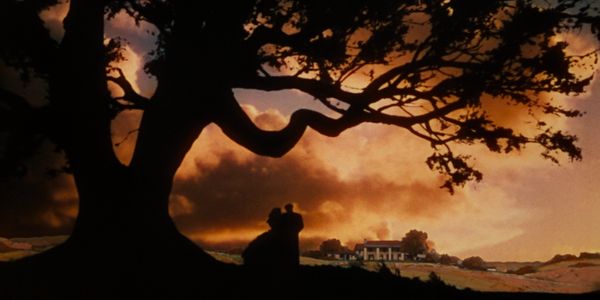
So with this movie being, adjusted for inflation, the most successful of all time, and the fervent conversation about its subject matter being had in print and online, it’s time to see how Gone with the Wind fares away from the hype
Gone with the Wind
Gone with the Wind is a dangerous movie in its depiction of slavery and slave owners. It creates a fantasy world in which slaves were treated well, loved by their owners, and surrounded by Southern gentlemen and ladies whose worst crime is to call them ‘darkies’, usually when they’re not around.
It has this incredibly quaint idea about life in 1860s America and has coloured this wrong-ended assertion that the Confederacy and Antebellum America are an important part of cultural heritage rather than a stain on the USA’s history. Because of depictions like this we get people having weddings on plantations, complaining about statues of Colonel Racist Dickhead III being pulled down, and a prevalence for the Confederate flag anywhere where assholes congregate to deal out violence and hate.
Obviously, the blame for the above does not fall squarely at Gone with the Wind’s feet, but this movie and its place in the cinema canon definitely don’t help. Having not read the original novel, I only know fractions of the changes made by the producers which include removing the Klu Klux Klan from their role in the story which is on the side of the good guys during the shanty town raid, so at least we were spared that.
The smooth edges that surround any talk of slavery are distracting and, frankly, infuriating. A particular scene has Ashley Wilkes, the most boring love interest to ever live, complain that Scarlett O’Hara wants to use free prison labor in her mill. Her argument is that freed slaves cost too much to employ while Wilkes laments the treatment of the prisoners. Scarlett rightly points out he had no beef with owning slaves and he says, “Yes, but I would have freed them when my father died.”
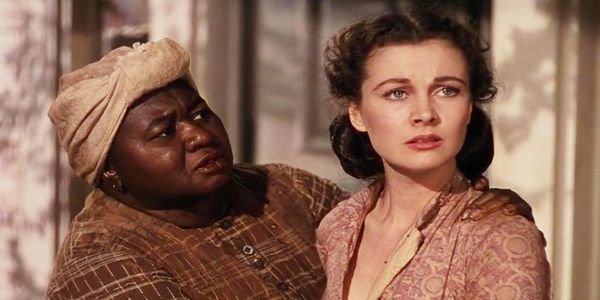
Interesting words from a man who just got back from fighting the North for The Cause. The Cause in this case was the keeping of slaves and how much the South loved it. Admittedly when war is on the table, Ashley and Rhett Butler are the only two characters who oppose it, Rhett because he knows the South will get their asses handed to them and Ashley because he just wants peace. But he stills wants to secede and doesn’t stop others from signing up. He never mentions slavery or an opinion on it.
In fact, no one really does. Slavery just happens around these rich white folk and is taken for granted while the Black characters never mention it. The staff Scarlett has at the start of the movie, she still has by the end though the war has ended and the emancipation proclamation has been written, there’s never an explanation for Mammy, Prissy, and Pork’s continued servitude to Scarlett. I don’t need much, just one scene of Mammy getting paid her wages would have been at least something.
But even without wages, throughout the movie, the slaves are treated very well. They are servants more than property which makes it seem like a cute arrangement rather than something horrific. The only violence we see against a slave is Scarlett slapping Prissy which happens during a scene of heightened panic also Scarlett dishes out slaps all the time so it’s not anything special. It’s not Sarah Paulson throwing a bottle at Lupita N’yongo’s face in 12 Years a Slave, it is more like a moment to heighten the tension as Melanie prepares to give birth during Sherman’s shelling of Atlanta.
The casual aggression and racism of most slavery stories are completely absent in this rose-tinted version of history. This is the version that idiots think was real. Men were men, women knew their place (mostly), and slaves were totally chill with being slaves. These are the Good Old Days for a certain percentage of the population even though they never really existed.
But how is it as a movie? That’s a bit of a hard question because Gone with the Wind is really two movies: The Civil War movie and the Restoration movie broken up by an intermission around the 2-hour mark. My wife and I actually took a break after the intermission and continued watching a few days later, which really hammered home for us the feeling that it was two movies, as we both felt quite satisfied after the first half and felt no rush to dive back in. Also, our one-year-old caught a cold so movie-watching was pushed to the back burner.
The Civil War movie is exciting, paced well, funny, sad, and exciting. It contains a lot of character work for Scarlett as she goes from spoiled brat to ballsy heroine during the war. And it also goes a long way to cementing the best romance of the movie: Scarlett and Melanie. The cat and mouse love story between Rhett and Scarlett is fun and flirty and carried along by the immense charm of the two actors, but it’s the blossoming friendship between Scarlett and her nemesis/best friend Melanie that drives the movie.
These two pragmatic heroines are both wonderfully drawn characters who carry the movie through the war and back to Tara. Scarlett who thinks of nothing but herself and Melanie who thinks of everyone but herself, are a delight to watch as Scarlett goes from hating Melanie with a passion to being forced into caring for her and eventually delivering her child.
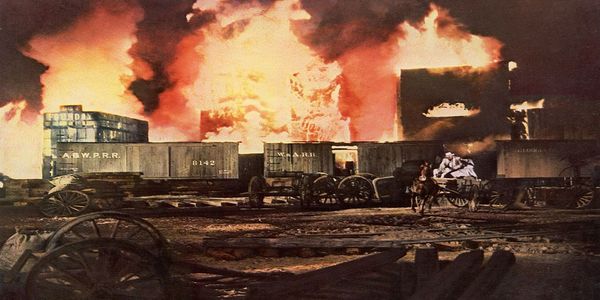
All Scarlett wants in the world is for Melanie to be out of the picture so she can get her precious Ashley, who has married Melanie (his cousin). And all the world wants for Scarlett is for her to keep Melanie alive. It’s wonderful to watch. Vivian Leigh and Oliva Havilland play such polar opposites and yet they feel closer to sisters than Scarlett does with her own siblings.
The second movie, all about the Restoration of the South and the arrival of the “evil” carpetbaggers, is much weaker. It starts strong with Scarlett trying to rebuild her fortunes, run the plantation, and scheme her way back into society. But eventually, it just becomes repetitive and endless.
Once Scarlett and Rhett are married they seem to go from happy to antagonistic very quickly and then we just get scene after scene of their fights. The main problem lies in the casting. Clark Gable is cool, handsome, and charming while Lesley Howards plays Ashley, the man Scarlett really loves, with all the sex appeal of a wet handshake.

The love triangle that Scarlett believes herself to be in doesn’t resonate. She believes Ashley is just waiting for the right moment to leave his wife and child and steal Scarlett away but nothing in Ashley’s actions suggests that. I would even go as far as to say that Ashley’s actions make him a bona fide f*ckboy of the highest order. He is the kind of dude who likes being in a relationship but also stringing women along at the same time. Both men in her life aren’t the best choices of partner, but at least Rhett Butler is constant, no bullshit honesty while Ashley Wilkes just f*cking sucks.
Conclusion:
A fascinating movie about “the good old days” that never really existed, Gone with the Wind is well worth watching. For movie buffs, it’s an incredible feat of almost ageless-looking filmmaking, and its take on the subject matter can’t help but create discussion. This is a version of history that distorts the past and creates an idealized view of an atrocity but it is compelling nonetheless.
This isn’t me saying “if you ignore the racism you’ll enjoy it” because that’s impossible. It is a lesson in the importance of critical thinking, of not taking something at face value. We know it’s a movie, but for my wife and I, who are Australian and English, it’s also a period of history we know exclusively from movies and television. I studied slavery in school in England but the English role in it. Plantation life and southern belles and all that is something I probably learned from watching Interview with the Vampire or overhearing my parents talking about Roots. So for us, it would be easy to fall into a hole thinking that it’s portraying historical events historically accurately when it most definitely isn’t. It’s knowing to question the depiction that keeps you out of that hole and leads to learning more about the history of the world and how awful a lot of it is.
Half an excellent movie, half a pretty good one, Gone With the Wind is a beguiling film full of great performances (especially Leigh, Gable, and the incomparable Hattie McDaniel), incredible set pieces, and fantastic dialogue. It’s also full of some super weird shit too.
Do you agree? What do you think of Gone With the Wind? Let us know in the comments below!
Does content like this matter to you?
Become a Member and support film journalism. Unlock access to all of Film Inquiry`s great articles. Join a community of like-minded readers who are passionate about cinema - get access to our private members Network, give back to independent filmmakers, and more.
A writer in Australia, Sean used to be a TEFL teacher and is now an academic consultant. He has been published in The Big Issue, Reader's Digest, Talk Film Society, and Writer Loves Movies. His favourite movie is The Exorcist and he prefers The Monster Squad over The Goonies. He is also the co-host of the Blue Bantha Milk Co. YouTube channel.













